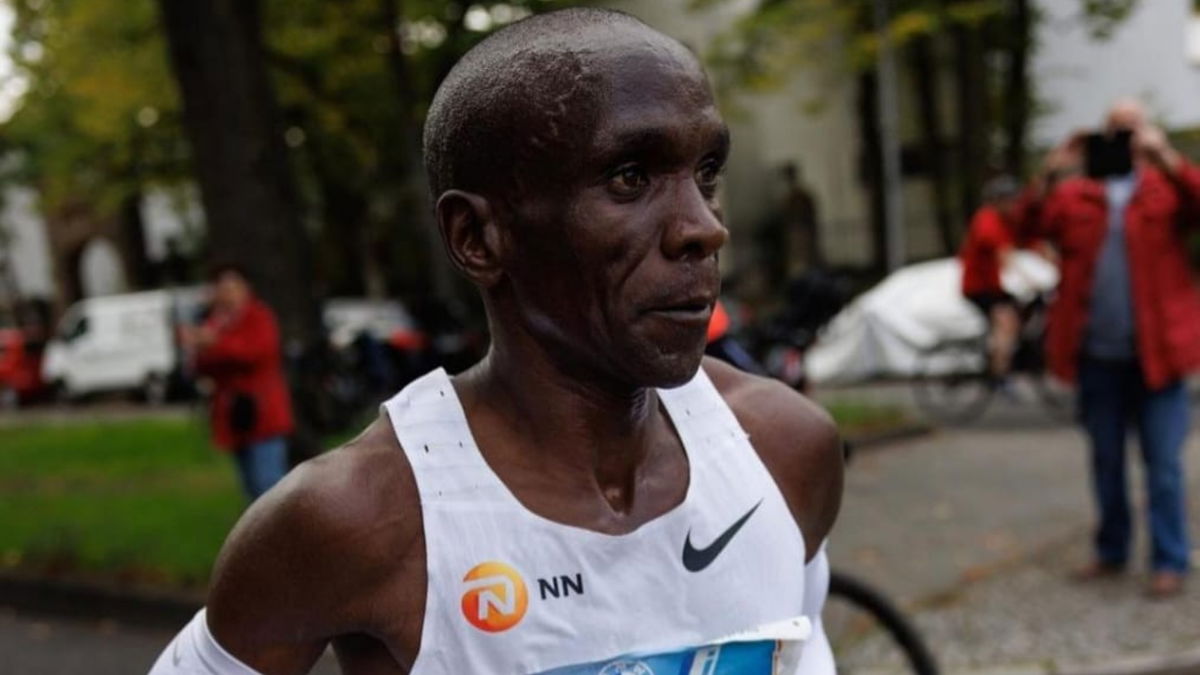

Eliud Kipchoge isn’t just a marathon runner; he’s a living legend who redefined human limits. From Olympic gold medals to shattering world records, and even breaking the two-hour marathon barrier, his journey is the stuff of sporting folklore. But behind every finish line, there’s a deeper story of grit, humility, and an unshakable bond with his coach, Patrick Sang. This isn’t just about races won, it’s about how one man quietly transformed distance running and inspired the world in the process.
Watch What’s Trending Now!
Who Is Eliud Kipchoge?
Eliud Kipchoge is a Kenyan long-distance runner, widely seen as the greatest marathoner of all time. He grew up in Kapsisiywa, a quiet village in Kenya’s Rift Valley. As a boy, he ran to school with no training plan, no coaches. Just legs and will. That daily rhythm became destiny. At 18, he stunned the track world, winning the 5000m at the 2003 World Championships. He beat legends that day. It wasn’t a fluke.
ADVERTISEMENT
More medals followed: An Olympic bronze in 2004, silver in 2008, and another silver in 2007 Worlds. But by 2012, he felt the track wasn’t enough. He pivoted to the roads. Some doubted he’d last. He answered with a blistering half-marathon debut of 59:25 at the Lille Half Marathon, coming in third. A year later, he won his first marathon in Hamburg at 2:05:30 hours.
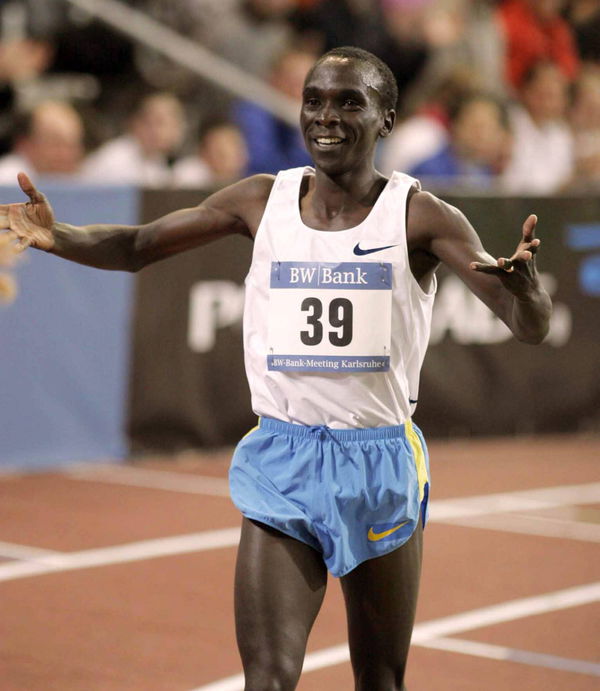
ADVERTISEMENT
From there, he just took off. Chicago 2014, then four wins in London, five wins in Berlin, all between 2013 and 2023, he ran 18 marathons and won 15. He broke the marathon world record in 2018, then broke his own record in 2022. His times, he was among the fastest ever run. Four of the top ten, in fact.
ADVERTISEMENT
Then came Vienna, 2019. The world held its breath. Could he break two hours? With pacers, lasers, and perfect planning, he did it, 1:59:40. It didn’t count as a record, but no one cared. He’d done what no one else had. “No human is limited,” he exclaimed. But he’s not invincible.
Since 2024, he’s lost three in a row. Yet the legacy’s already built. Olympic champ in 2016 and 2020. BBC World Sport Star. Elder of the Order of the Golden Heart. Princess of Asturias Award in 2023. Still, he’s that quiet guy who trains with his team, lives simply, and reads philosophy. Eliud Kipchoge doesn’t chase fame. He chases forward.
ADVERTISEMENT
What Is Eliud Kipchoge’s Nationality?
Eliud Kipchoge is Kenyan. Born and raised in Kapsisiywa, Nandi County, Kenya. It’s a quiet village tucked in the highlands of the Rift Valley. He grew up surrounded by rolling hills, dirt paths, and endless sky. That landscape shaped him. So did the culture of running around him.
Top Stories
Scottie Scheffler Faces Scrutiny After Taking Out Anger on Golf Club at WM Phoenix Open: ‘Washed’
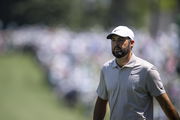
Jordan Spieth Throws Bizarre Temper Tantrum as Opening Round at WM Phoenix Open Becomes a Challenge

Rob Gronkowski Demands Severe Punishment for Andy Reid After Bill Belichick Snub
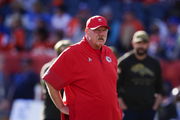
PGA Tour Split Into Two as Scottie Scheffler Confirms Stance on Patrick Reed’s Return
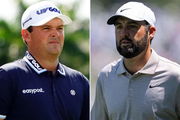
Rickie Fowler Fans Demand Answers Following ESPN’s Controversial WM Phoenix Open Decision
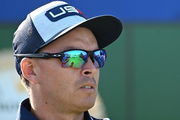
Drake Maye Reveals Shoulder Injury Update as Patriots QB Announces News On Super Bowl Availability
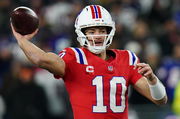
In that part of Kenya, distance running isn’t just a sport—it’s everyday life. Kipchoge ran to school daily, barefoot, like many kids in his village.
He didn’t know it was training. It was just how life worked. Kenya gave him more than citizenship: It gave him identity, rhythm, and purpose. Even after global fame, he stayed grounded in his Kenyan roots. He trains with fellow runners, eats local food, and speaks in his native tongue. Fame didn’t move him to cities; he still lives near where he was born. To Kipchoge, being Kenyan isn’t a label—it’s the heart of his story.
ADVERTISEMENT
What Is Eliud Kipchoge’s Ethnicity and Religion?
Eliud Kipchoge is Kalenjin, from the Nandi sub-group in western Kenya. This ethnic group has deep roots in endurance running and highland farming. He was raised in Kapsisiywa, where many future champions also come from. His heritage isn’t just cultural, it’s physical, environmental, and deeply personal. But it’s not just his ethnicity that shaped him; it’s also his faith.
Kipchoge is a devout Catholic, and his belief runs deep and steady. He goes to mass with his family every Sunday, without fail. His mother wakes at 3 a.m. to pray the Rosary for him. That quiet devotion surrounds him—at home, in camp, and during competition.
ADVERTISEMENT
Before every race, he prays. After every race, he gives thanks. He sits on his knees, crosses himself, and bows his head. It’s not a performance. It’s how he centers himself amid global attention.
Kipchoge says faith keeps him grounded, especially when fame tempts the ego. He doesn’t chase glory. He trains, prays, reads, and cleans his own dishes. At camp, he makes his own bed, just like everyone else. He believes success without humility is hollow, and faith keeps him steady. He reads scripture and motivational books, always trying to grow wiser. For him, religion isn’t rules, it’s a way to stay aligned and calm. That serenity shows on race day: Calm face, steady breath, no panic.
ADVERTISEMENT
Who Are Eliud Kipchoge’s Parents?
Eliud Kipchoge was raised by his mother, Jane Rotich, after his father died early. He barely remembers his father, only the stories told by others. Jane was a nursery school teacher, firm but fair, calm but steady. She raised four kids alone, with little money but plenty of resolve. Kipchoge was the youngest and closest to her; he still calls her strong. He says she shaped his values, his routine, his sense of self. She taught discipline, simplicity, and the power of sticking to good habits.
Even when life was tough, she made sure they all got educated. Kipchoge biked 20 kilometers daily to deliver milk and still made school. That kind of grind is learned straight from watching his mother push through. No shortcuts. No whining. Just work, faith, and doing things the right way. He admits growing up without a father stung, especially in a traditional society. Kids talked about their dads. He stayed quiet and just listened instead.
Society doubted boys raised by single mothers. Kipchoge turned that story around.
ADVERTISEMENT
“I broke the two-hour mark without a father,” he once told reporters. “Let those with fathers try and beat that,” he added with a smile. Their bond remains unshakable. His humility, his discipline, and his strength come straight from Jane Rotich. To Kipchoge, she wasn’t just a parent. She was the foundation, the compass.
His world records and Olympic golds sit on the back of her sacrifices. And even now, through every victory, her quiet strength still runs with him. But, later in life, it wasn’t just his mother who supported him everywhere; his wife was equally there.
Who Is Eliud Kipchoge’s Wife?
Eliud Kipchoge’s wife is Grace Sugutt, his partner for over 17 years now. She’s not just his wife, she’s his anchor, his calm before every storm. Grace comes from a running background, too, so she understands the grind. She knows the early mornings, the discipline, the silence before big races. They’ve built a quiet life together, raising three children away from spotlight noise. During Kipchoge’s historic 2022 Berlin Marathon, Grace wasn’t just watching; she was fasting.
For seven days, she prayed hard, asking God for a miracle. And when Kipchoge broke his own world record, she knew why. “I fasted. I prayed. I’m just happy the victory came home.” Her words were simple, but the power behind them was real. He often says his success is a team effort, and Grace is core. While coaches handle splits, she handles spirit. While pacers run, she prays. They go to church as a family. Their faith is personal, quiet, woven into everyday life like breath itself.
Their kids don’t just see trophies; they see sacrifice, hard work, and grounded living. Grace once said his Berlin run inspired their children to work harder. In school, in life, they’re learning success isn’t handed, it’s earned with intention. She makes sure their home stays humble, even when headlines shout Kipchoge’s name.
Grace doesn’t run the marathons, but she carries a weight just as heavy. And Kipchoge, he never forgets it. Every win carries her fingerprints, too. But, behind all this, they have built a life they wanted.
What Is Eliud Kipchoge’s Net Worth in 2025?
As of 2025, Eliud Kipchoge’s estimated net worth sits around $3 million. That number didn’t appear overnight; it’s been built mile by mile, year by year. His earnings come from prize money, long-term sponsorships, and major endorsement deals.
Every marathon brings in around $50,000, but wins often mean more. When records fall, bonuses rise, and sponsors get louder with the checks.
Still, Kipchoge lives like a man untouched by wealth. He trains in a basic camp in Kaptagat, far from luxury. At home in Eldoret, things are simple and modest: House, family, books, and silence. No entourage, no flash, just structure, routine, and deep focus on purpose.
Kipchoge says money doesn’t change your mission; it just helps you reach more. He’s invested in causes, speaks for clean sport, and mentors younger runners often. The millions matter, sure, but legacy and discipline are what he values more. In a world chasing excess, Kipchoge keeps choosing just enough and running straight through greatness.
Eliud Kipchoge’s Endorsements and Sponsorship Earnings
Eliud Kipchoge’s endorsement portfolio is as strong as his marathon records.
For over 20 years, Nike has been his main sponsor, backing his runs. Fans spot him sporting Nike gear, from shoes to apparel, at every race. But it’s not just Nike that benefits from Kipchoge’s immense fame. His partnership with INEOS, a global energy company, is also a game-changer. This collaboration helped fuel the historic INEOS 1:59 Challenge in Vienna.
Maurten, the sports nutrition brand, also signed him up, providing race-day support.
Each of these deals has boosted his earnings, solidifying his financial success. In 2019, when he broke the two-hour marathon barrier, brands took notice. His sub-two-hour achievement raised his value across the sports and business worlds. But it wasn’t just record-breaking runs that made him a valuable asset.
Kipchoge’s discipline, work ethic, and humility made him a global ambassador. Beyond sports, he endorsed Isuzu’s D-Max, celebrating his marathon milestones. He received a special edition of the truck, a $41,000 prize for his feat. Though the luxury items are nice, Kipchoge stays true to his simple roots.
What Are Eliud Kipchoge’s Career Highlights?
Eliud Kipchoge has one of the most decorated careers in marathon history. He is widely considered the greatest marathoner of all time, known for his mental strength, consistency, and incredible race tactics. He holds the record for the most marathon victories in history and has revolutionized the sport with his extraordinary achievements, particularly his sub-2-hour marathon. Here are some of his key career highlights:
Olympic Medals
Gold in the Marathon: 2016 Rio Olympics, 2020 Tokyo Olympics
Silver in the 5000m: 2008 Beijing Olympics
Bronze in the 5000m: 2004 Athens Olympics
Marathon World Records
World Record (Berlin, 2022): 2:01:09
Previous World Record (Berlin, 2018): 2:01:39, breaking Dennis Kimetto’s 2:02:57 (2014)
First to Break the 2-Hour Barrier (Vienna, 2019): 1:59:40 (not a recognized world record due to controlled conditions but celebrated as the first sub-2-hour marathon)
Major Marathon Wins
London Marathon: 2015, 2016, 2018, 2019
Berlin Marathon: 2015, 2017, 2018, 2022, 2023
Chicago Marathon: 2014
Tokyo Marathon: 2022
Total of 10+ Major Marathon Wins
Notable Achievements
2003 World Athletics Championships (Paris): Gold in the 5000m
Breaking 2-hour Challenge (2019): First person to run under 2 hours in a marathon (1:59:40), though this was an unofficial record
Berlin 2018: Set a world marathon record (2:01:39), widely regarded as one of the greatest marathon performances ever
Tokyo 2020: Defended his Olympic marathon title with a victory in 2:08:38, becoming only the third person in history to win back-to-back Olympic marathon golds
Berlin 2022: Broke his own marathon world record with 2:01:09
Other Career Highlights
Incredible consistency: Kipchoge has never finished a marathon outside the top 10 (except for his 2024 Paris Olympic Marathon dropout because of back and waist pain).
Boston Marathon (2023): Suffered his third-ever marathon defeat after missing his water bottle and facing leg discomfort. Finished 6th with a time of 2:09:23.
Berlin 2023: Won his record 5th Berlin Marathon with a time of 2:02:42, but failed to break his own world record.
Who Is Eliud Kipchoge’s Coach?
Eliud Kipchoge’s long-time coach is Patrick Sang, a former steeplechase runner who won a silver medal at the 1992 Olympics in Barcelona. Their partnership dates back over two decades, starting when Kipchoge was just 16 years old. The relationship between them is built on trust and mutual respect, with Kipchoge always following Sang’s training advice without question.
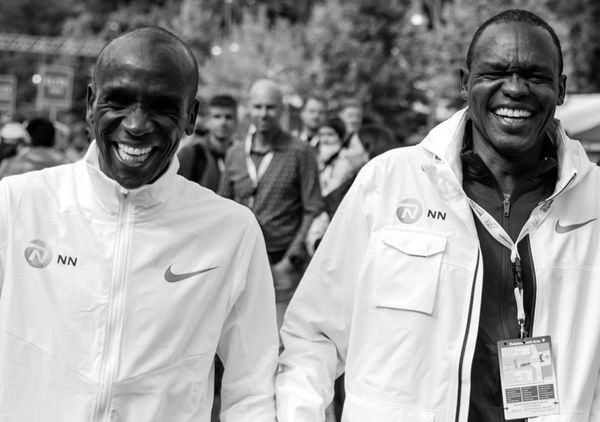
Sang was already a respected athlete before transitioning into coaching in the late 1990s. Despite initially coaching in the steeplechase, he later expanded his approach to training distance runners, including Kipchoge. He earned a coaching certification from World Athletics and began to create personalized training plans tailored to the unique needs and potential of each athlete.
Sang’s coaching philosophy focuses more on long-term development rather than short-term gains or breaking records. He emphasizes the importance of athletes listening to their bodies and progressing at their own pace. For him, seeing athletes improve in their training is more satisfying than them winning medals or breaking records.
This coaching philosophy has been a major factor in Kipchoge’s success, including his dominance in marathons, where he has won 16 major marathon victories from 22 official marathon races. Their relationship, based on trust and mutual respect, has allowed Kipchoge to continually push the boundaries of human endurance, with his iconic sub-two-hour marathon attempt in Vienna serving as the pinnacle of their collaboration.
ADVERTISEMENT
ADVERTISEMENT
ADVERTISEMENT